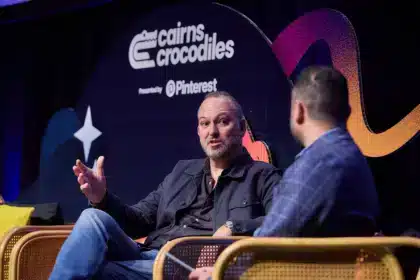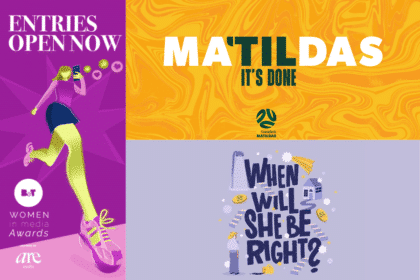The Australian Electoral Commission (AEC) has confirmed it is reviewing a series of social media posts by influencer Abbie Chatfield featuring Prime Minister Anthony Albanese and Greens leader Adam Bandt, amid growing scrutiny over the role of influencers in political campaigning.
The posts, which include podcast clips and event footage, are being assessed to determine whether they qualify as political content requiring authorisation under the Electoral Act.
“The AEC will review these posts,” the commission confirmed in a statement to AAP. “When it comes to any content on social media, the AEC’s advice is always ‘if in doubt, authorise’.”
The review will assess whether posts shared across Instagram and Chatfield’s podcast platform are classed as “electoral matter” under the Electoral Act, meaning they would require a legal authorisation message – a key tool for ensuring transparency in political messaging.
At the centre of the debate are three collaborative Instagram clips between Albanese and Chatfield from his appearance on her It’s a Lot podcast, including one that highlights Labor’s Medicare policies while criticising the Liberal Party’s record on health.
View this post on Instagram
Bandt’s Instagram account features four joint posts with Chatfield, including footage from their “VOTE” DJ event in Melbourne and a podcast clip where she describes him as an “incredible leader.”
View this post on Instagram
The AEC’s investigation was triggered after Coalition senator Jane Hume questioned acting electoral commissioner Jeff Pope during a budget estimates hearing.
“We’d have to look and see whether content was being produced of the own volition of the person who’s the influencer or [if there] is another buying, potentially using that as advertising and promotional content,” Pope responded.
Chatfield, known for her outspoken commentary, clapped back in typical unfiltered fashion. On Tuesday, she posted a clip of the budget exchange to Instagram with the caption: “After a *false* article saying that influencers were paid to attend the budget, Liberal Senator Jane Hume decided to asked pointed questions suggesting that the Greens had paid me to post”.
View this post on Instagram
“It’s so funny that the Liberal Party can’t comprehend that maybe young people, aka influencers, just f—ing hate the Liberal Party,” she said in the video.
“There’s a moral panic about influencers in politics … this idea that influencers can’t be trusted with something as serious or highbrow as politics.”
She also firmly denied being paid for her posts: “I was not paid to post for the Greens,” she said. “There have actually been no verified accounts of influencers being paid to attend the budget – they’ve just made that up.”
While the Liberal Party raised concerns over whether the posts amounted to paid political advertising, a government spokesperson clarified that while some influencers were compensated for travel and accommodation to attend the federal budget, they were “not directed on what content to produce”.
Senator Hume maintained that new generation political commentators were welcome in the public discourse but must comply with existing rules.
“We all want to understand what is expected for new communications to comply with electoral laws … [if influencers] are partisan and are seeking to influence votes the law requires them to register and authorise their activity.”
Under current legislation, traditional news media are exempt from authorisation requirements, but the AEC must now decide whether Chatfield’s content qualifies as editorial opinion or crosses into political campaigning.
The AEC applies what’s known as the “dominant purpose test” to make this judgment – considering factors such as whether the content encourages certain voting preferences or includes explicit political commentary.
A spokesperson for the Greens confirmed the party had “received no advice from the commission about the posts”.
The review stands to be a flagship test case for how Australia’s election watchdog handles the growing relationship between politicians and influencers in the digital age – and whether viral content by personalities like Chatfield should be treated as political advertising.
As politicians increasingly look to social media influencers to connect with younger voters, the outcome of this probe may set an important precedent ahead of election day.








